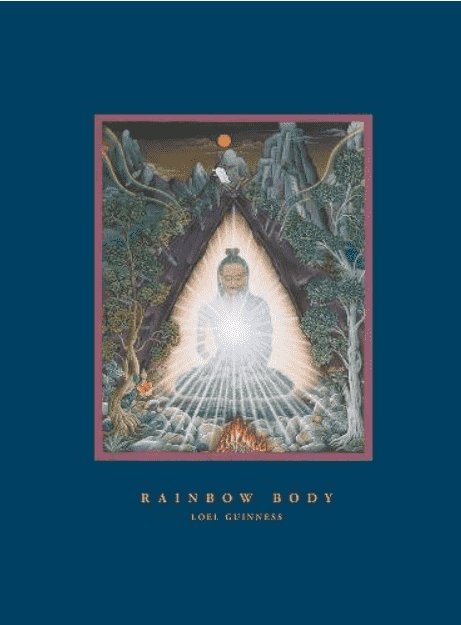Rich heirs doing good and bad: Guinness, Seagram, Bronner, Getty, Koch. Psychedelics and other surprises.
- Till Gebel
- Jun 21, 2024
- 6 min read
Here are two things rich heirs do:
Promote Buddhism or psychedelics
Run a sex cult or die with rectal injuries.
Quite obviously, this is not representative. Neither are rich heirs the only people doing such things. Overall I guess they are normal.
Rich heirs promoting Buddhism or Psychedelics
I not quite randomly selected a few interesting people here
Loel Guiness, heir or the Guinness beer dynasty
Jeff Bronfman, heir of the Seagram whiskey dynasty
Dr Bronner, heir of the Bronner soap company
Elisabeth Koch, heir of the Koch family.
Maria Mori-Oakley, associated to Oakley glasses
Each of them, in their way, does something quite useful. For example, Guinness and Bronner are both involved in the psychedelics renaissance.
Loel Guinness (heir of Guinness beer)
Images from (click on any book to go to Amazon)
Loel Guinness has written and produced a profoundly insightful and very readable, wonderfully edited and illustrated book on the Tibetan Bon Buddhism tradition (pictured above). Unfortunately, the Hardcover edition is over 180 euro, and no longer available in Europe. I bought it when it still was available. Should have bought two! But it is worth trying to get one as one of the most beautiful and eductaing coffee-table books ever. The book eists in the original long edition, and in a version that is more accessible to the broader public. Sadly, even the Kindle edition has an extraordinary Kindle price of 82 Euros.
It´s interesting to take note of the cover differences between the two editionss: it seems to me, that the second cover is more "psychedelic" than the traditional hardcover image. The iconography of the Kindle edition clearly includes peacock feathers. Now, the peacock, as Mike Crawley mentions in his "The Secret Drugs of Buddhism", is a pointer to the Amanita Muscaria (fly agaric) mushroom, which according to some theories, through its mind-expanding effects, lies at the basis of Buddhism.
Guiness´ website gives away a few details of this biography. However, there are some other additional tidbits of an interesting life in the introduction to the above book.
Here a few sentences from his introduction.
"As a young man, I was not drawn to conventional life. I carried an uneasiness about inherited wealth and I felt a need to do something or to be something out of the ordinary. For I have always believed and I still believe, that it is the duty of every man of wealth to achieve something - or at least to facilitate something - genuinely extraordinary, something that really pushes the boundaries of human experience or understanding. And since I never saw any real value in conventional success for its own sake, nor any real prospect of satisfaction in the conventional lifestyles of the wealthy, I was drawn to extremes. It was an instinct - a rebel instinct in many ways - that at times let me down some perilous avenues. The intoxications of a misspent youth in New York City for example. But it has also, I like to think, yielded some interesting and valuable results. I adopted a model of philanthropy first with the Loel Guinness Foundation, and later with the Kalpa group - in which I use my resources to support individuals of exceptional potential to realize their ambitions. This has led to some very diverse projects. Back in the 1990s, I worked with Nish Bruce on a project to make the first skydive from space; In London, I worked with a group of former SAS operatives to expose human trafficking gangs to bring them to book. In Florence I supported some groundbreaking diagnostic studies of Leonardo da Vinci masterpieces; and in Tibet, I supported and took part in several unprecedented explorations, one of which was crossing the Chang Tang, as well as three climbing attempts on the notoriously treacherous north-east face of Mount Everest just to name a few.
But through all of these adventures, I was not, fundamentally, a very happy person. Drugs and alcohol played a significant role in my life. In hindsight I now see that I was always trying to prove myself, always running from one thing to another, searching for something to take me out of myself, to forget about my responsibilities, and to feel superior to the run-of-the-mill. I had financial independence, and I had the liberty to do as I pleased. But it was confidence tinged with anxiety, self-doubt and dissatisfaction. And what may have struck others as an arrogant exterior was insecurity and pain
In my case, the traditional emotional support of the wealthy, psychoanalysis and psychotherapy, didn't help at all. If anything, they only encouraged me to indulge my old childhood experiences of loss and abandonment and create a big drama out of my own life. Like spinning oneself a great cocoon with the idea that "I am so special". For me, this just created further alienation and did nothing to alleviate the fardeau on my back - that weight of memories, legacies, responsibilities and expectations which I inevitably carried as one of the main heirs to a major family. So for many years, I was prone to escapism through drugs, alcohol and hedonism. I was always looking for a way out.
Jeffrey Bronfman (heir of Seagram Whiskey)
A man who supports the legalization of the psychedelic/entheogen Ayahuasca, and who headed a US American Ayahuasca church.
He also runs the Ayahuasca Defense Fund.
The following diagram is from some mad conspiracy website. I included it for amusement only.
Here is an extract of the nonsense:
"Appears to be working with the CIA and ‘Deep State’ drug cartel to advance “pharmaDMT” “spiritist,” and “consciousness” movements. Connected to Canapy Growth Co. that financies THC R&D and purchased Beckley Therapeutics advancing “palliative psychopharmacology.” Bronfman and Big Pharma is sitting on top of Beckley Foundation, MAPS, and the fraud-filled ayahuasca enterprise."
More common in public awareness is for example another Bronfman heir Clare Bronfman, who is now in prison for her involvement in an abusive sex cult around the sex offender Keith Raniere.
Dr. Bronner (heir and CEO of Bronner)
Dr. Bronner is the heir to the Bronner soap-company. He runs it and he supports psychedelic research and advancement using the money of this company, and his personal wealth.
It is EXCELLENT soap!!!! Honestly. It is the only one I use for my body and hair. They seem to be expensive but last a very long time due to the high degree of concentration. I prefer the Peppermint variety.

Strangely enough, Dr Bronner is mentioned, in 2005 when he was not yet known as connected to the psychedelic scene, in one of the most poetic books on non-duality: "Perfect brilliant stillness" by the British actor David Carse. David Carse, when younger, had a deep reaching experience of non-duality through Ayahuasca.
One of the book chapters is called "The Dr Bronner's bottle", and it compares his own "non-dual gibberish" to what one reads on the labels of Dr Bronner's soap that one finds in health shops. At one point the text juxtaposes Dr Bronner and Rumi .
Maria Mori-Oakley /Osho's Dragon Lady
Maria Maori-Oakley is associated to the Oakley glasses company.
In the Osho imperium, she became "Dragon Lady", a key person in Osho's empire.
Much later, she opens up in a podcast about the abusive nature of Osho
Resources
Bronner, D. (2022, September 9). The All-One Blog. Dr. Bronner. Retrieved 10 September 2022, from https://info.drbronner.com/all-one-blog/
Carse, D. (2005), Perfect Brilliant Stillness.
(There used to be a website with a free version of the book)
Crowley, M., & Shulgin, A. (2019). Secret Drugs of Buddhism: Psychedelic Sacraments and the Origins of the Vajrayana (2nd ed.). Synergetic Press.
Guiness, L. (n.d.). Loel Guiness. This website may load very slowly
ICEERS. (n.d.). Iceers Ayahuasca Defense Fund and Dr Bronner. Retrieved 10 September 2022, from https://www.iceers.org/jeffrey-bronfman-endorses-the-ayahuasca-defense-fund/
Wikipedia contributors. (2022b, August 23). Clare Bronfman. Wikipedia. Retrieved 10 September 2022, from https://en.wikipedia.org/wiki/Clare_Bronfman
Koch
Getty Family
Oakley, Maria (Oakley Glasses)
Dragon Lady
Sheraton Hotel Family
Marcia Moore, heiress to the Sheraton hotel fortune, and a prolific New Age celebrity and yoga pioneer of the 1960s and 1970s. Moore was an early advocate of ketamine, which she predicted would become the ‘therapy of the future’, bringing about ‘the psychospiritual regeneration of planet Earth’.








Komentar